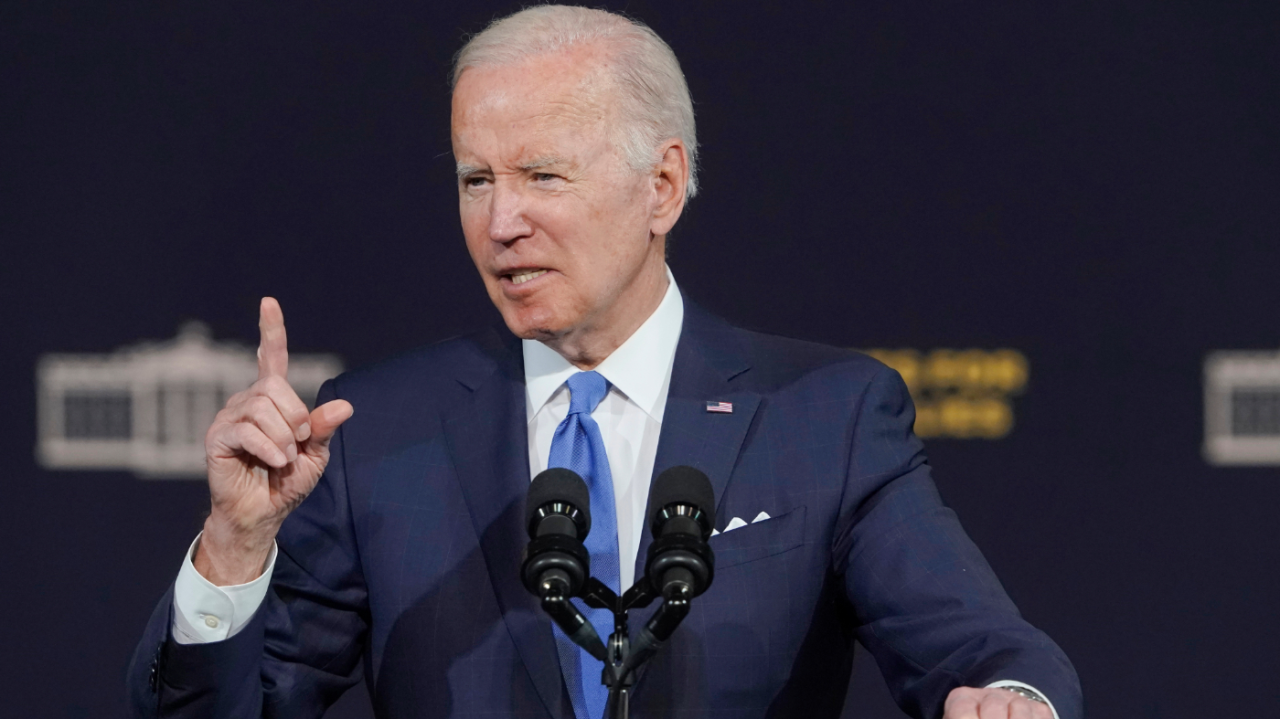President Biden has made several promises on clemency. He broke one of those promises by pardoning his son, Hunter Biden, who he claimed had been unjustly charged.
He also pledged to use his clemency powers broadly to address mass incarceration and remedy harsh, unjust sentences. So far, that promise has gone unfulfilled. Biden has granted fewer clemencies than President-elect Donald Trump did in his first term, and fewer clemencies than any other U.S. president since 1900 except for George H.W. Bush.
But it is not too late. Now is the time for Biden to take robust action on clemency. People’s lives depend on it.
Clemency is one of the most powerful tools in a president’s toolkit. With the stroke of a pen, a president can give a convicted person a second chance. There are thousands of deserving clemency candidates in the federal prison system — people who have paid the price for their crimes and no longer pose any safety risk to our communities — who are in danger of being left behind.
As 54 clemency recipients from Republican and Democratic presidents recently wrote in a letter to Biden: “Even in freedom, we never forget that we left a lot of good people behind — people who deserve justice and mercy.”
With so little time left in Biden’s presidency, it is important to underscore the stakes of clemency. As a criminal defense attorney with two decades of experience, I have seen firsthand the need for bold action on clemency.
The stories of three individuals — Robin Peoples and Dion Walker, whom my law students and I represent, and April Rice — demonstrate why President Biden must keep his promise to use his clemency powers broadly.
Peoples is serving a jaw-dropping 110-year sentence for a series of bank robberies he committed in the 1990s, in which no one was physically harmed. The Federal Bureau of Prisons lists his release date as May 6, 2093, so absent intervention, Peoples will die in prison. That would be senseless, because he has already shown he can thrive as a free man.
In 2021, Peoples’s sentencing judge granted him early release, citing the “stunning unreasonableness” of the sentence by today’s standards and his exemplary rehabilitation.
He returned home to Indiana, reconnected with family and friends and worked as an “excellent” employee at a local company. That all ended when federal prosecutors challenged the judge’s decision to release him and he was forced to self-surrender to serve the remainder of his sentence.
Just as before, Peoples’s community is ready to welcome him home again, and he can return to the job he previously held. Sixty Bureau of Prisons staff members, who see him day in and day out, strongly support his release and wrote in a petition that it would be a “waste of taxpayer money” to continue to incarcerate him. Those employees are right — there is simply no reason for him to remain in prison.
Dion Walker is serving a “three strikes” mandatory life sentence for selling drugs to a government informant. His sentence is a draconian relic of the war on drugs, which has disproportionately impacted Black men like him.
Walker is 50 years old and has served almost 20 years in prison. Today, as a result of bipartisan changes to our drug laws, he would face just a 15-year mandatory minimum sentence and would surely be a free man by now. However, Congress did not make those changes retroactive.
Walker is so much more than his criminal record. His current judge has lauded him as a “model prisoner” and agrees that his life sentence is “longer than necessary to accomplish the purposes of sentencing.” Despite being a model prisoner, Walker remains incarcerated at a high-security U.S. penitentiary that is dangerously understaffed, which endangers the safety of people living and working there and has led to reliance on punitive lockdowns.
It doesn’t have to be this way. Walker has a strong release plan in his hometown, where he would live with his fiancé and where he has multiple job offers. There is no doubt that he has earned a second chance.
Finally, April Rice is serving a 20-year mandatory minimum sentence for a nonviolent drug offense. Her sentence was doubled based on a sentencing enhancement that could not be imposed if she were being sentenced today.
In 2022, Rice was permitted to serve the remainder of her sentence in CARES Act home confinement, reflecting the Bureau of Prisons’ assessment that she was extremely unlikely to reoffend. Since that time, she has become a dedicated employee whose supervisor sings her praises.
Because Rice is thriving, there is no longer any need for her to be closely supervised under a Bureau of Prisons sentence, which limits where she can go and what she can do. What’s more, her limited freedom is at risk, as some legislators have proposed reincarcerating her and approximately 1,500 other people who are doing well in home-confinement.
To protect Rice and other CARES Act recipients from being cruelly sent back to prison, Biden should grant them commutations.
There are many more like Peoples, Walker and Rice who have served their time and deserve a second chance. With the stroke of his pen, Biden can solidify his legacy as a champion of clemency for all — not just for those who are lucky enough to be his son.
Erica Zunkel is a clinical professor at the University of Chicago Law School and director of the Criminal and Juvenile Justice Clinic. As part of the clinic’s Excessive Sentences Project, she and her students pursue post-conviction relief for federal prisoners serving extreme sentences.



